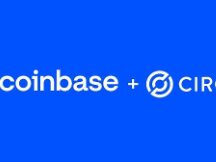Coinbase starts at the metaverse
Yesterday Brian Armstrong, CEO of cryptocurrency-based cryptocurrency exchange Coinbase, and Alex Reeve, director of analysis tools, posted a blog post outlining the company's vision, insights from Metaverse and development plans (analysis based on NFT, ETH / Coinbase connection). work tools, etc.).
If Coinbase were to become a popular choice for people to access the meta world (more connected to the virtual world) and manage themselves like a vision, then people would be spending their money. Facebook visits a lot of websites, but Facebook doesn't have a lot of privacy practices. and censorship of things. For Coinbase, things will be different, as Metaverse is developed by multiple platforms and no company or organization governs it, but the key is not to bring the Web2.0 style to Web3.0.
The "ENS" mentioned by Coinbase in the article is an acronym for "Ethereum Name Service", and the hard symbol that makes the wallet is called "GeorgeWashington.eth" (or whatever name you want). Coinbase believes that ENS will be an important step in making Metaverse accessible to more users.
We have collected some texts and images from Coinbase in the upcoming Bayes Lab, so take advantage.

Almost everyone today is talking about the meta world.
The first Meta Universe platform sold virtual land for millions of dollars. Millions of dollars have also been invested in startups in the meta-universe. Mark Zuckerberg recently renamed his entire Facebook company Meta to reflect his interest in creating a meta world.
The word "meta universe" is not new. It was first used by author Neal Stephenson in his new 1992 Snow Crash. However, as technology advances and the cost of living we spend on the internet increases, more and more people start thinking about what will happen next and what the world will be like, digital and physical realms will change in the future.
Definition of the meta-universe
Our view of the Coinbase metaverse has been greatly influenced by market capitalization and author Matthew Ball. Like Matt, we define the metaverse as “the future of the Internet”.
It is a large, stable, interactive, interactive, real-time virtual world that can interact with the real world where people can communicate, work, interact and have fun.
Web1.0, a first version of the Internet, concerns access to static web pages, Web2.0 deals with relationships in a closed ecosystem, and Web3.0 refers to digital ownership in an open and decentralized environment.
The meta world is far from Web3.0. In its fullest form, it would be an isolated and interconnected virtual world, with features that would allow humans to do whatever they can in the world.

Image:
◆ Web2.0 → Web3.0 → Evolution of the meta-universe
2 Web2.0: Interact, interact, share and collaborate. (closed and centralized)
3 Web3.0: Membership, Digital Benefits, Creative. (Improvements, confidence and rejection)
◆ Meta Universe: Connect and support virtual worlds, platforms supporting applications and activities, durability, synchronization, native operation and global operation. (Open, decentralized and interoperable)
It's important to note that the Metaverse is different from gaming (the game you can play in the Metaverse) or VR (the way you interact with the Metaverse). It is also different from Web3.0 (the distant ancestor of the meta-world).
To rely on that, there are a few differences between the current meta-world platform and the definition of the meta-universe.

Key points of the meta edge
It will take many years to complete the meta-world, but the meta-world needs to be developed on the basis we have today in our final analysis.

As today on the Internet, the metaverse relies heavily on hardware and architecture, design tools and management systems, which are often underdeveloped.
But unlike today on the Internet, there is not a single metaverse. There will be multiple meta-worlds and they will interact. This is why all the metacosms are amazing and people can be directly affected without going through a middleman. No separate permissions are required, so anyone can participate without permission from the governing body.
To achieve this, Metaverse relies on blockchain exchange and membership in the virtual world, identifying it by process and requiring the payment to be released.
Who created the current meta world?
While we can't relate it to the entire meta world, other companies and organizations are working on other aspects of the meta world. Most fall into three categories:

The global meta edge ecosystem is still in its infancy and at the cutting edge of technology. This is its charm.
personnel
You personally decide who you are, what to visit and what to do, and how you are represented in the virtual world.
In the meta world, we need to include easy access, a unique number, an avatar that represents us, metadata that follows us, and proof that we are who. The current state of each field is shown below.

The Coinbase Meta-Universe Vision
At Coinbase, we hope to pool all the resources in the domain. This is the concept of working with the ENS.This allows you to create a unique NFT by name.. Ultimately, this will allow users to maintain their unique privacy in another world of the meta-universe.
We're also developing the ability to buy avatars, manage public data, and sign in with [Ethereum / Coinbase], which gives you access to any Metaverse app.
In our final review, it had nothing to do with expanding our business or making money. It's about creating an integral part of the meta-universe ecosystem and helping the crypto industry move in the right direction. We know the meta-world will come true, and we know it will be an interactive virtual world. Our mission is to enable everyone to develop and enter the world in a simple, reliable and distributed way.
If we are successful, the Metavers will be able to reach their full potential and remain free and open to all.

Scan QR code with WeChat


